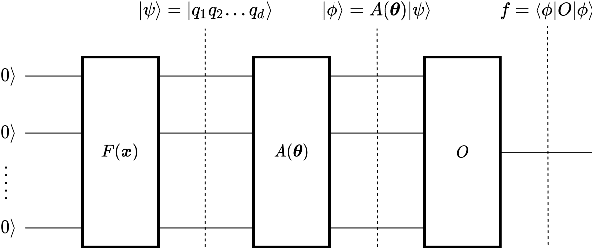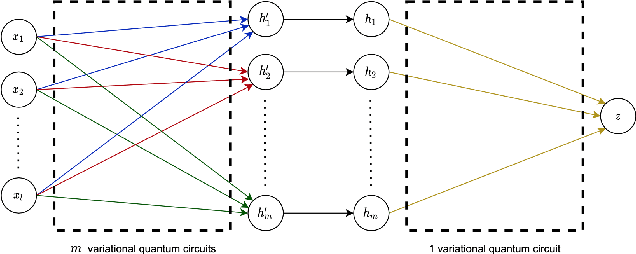A Hybrid Quantum-Classical Neural Network Architecture for Binary Classification
Paper and Code
Jan 11, 2022



Deep learning is one of the most successful and far-reaching strategies used in machine learning today. However, the scale and utility of neural networks is still greatly limited by the current hardware used to train them. These concerns have become increasingly pressing as conventional computers quickly approach physical limitations that will slow performance improvements in years to come. For these reasons, scientists have begun to explore alternative computing platforms, like quantum computers, for training neural networks. In recent years, variational quantum circuits have emerged as one of the most successful approaches to quantum deep learning on noisy intermediate scale quantum devices. We propose a hybrid quantum-classical neural network architecture where each neuron is a variational quantum circuit. We empirically analyze the performance of this hybrid neural network on a series of binary classification data sets using a simulated universal quantum computer and a state of the art universal quantum computer. On simulated hardware, we observe that the hybrid neural network achieves roughly 10% higher classification accuracy and 20% better minimization of cost than an individual variational quantum circuit. On quantum hardware, we observe that each model only performs well when the qubit and gate count is sufficiently small.
 Add to Chrome
Add to Chrome Add to Firefox
Add to Firefox Add to Edge
Add to Edge